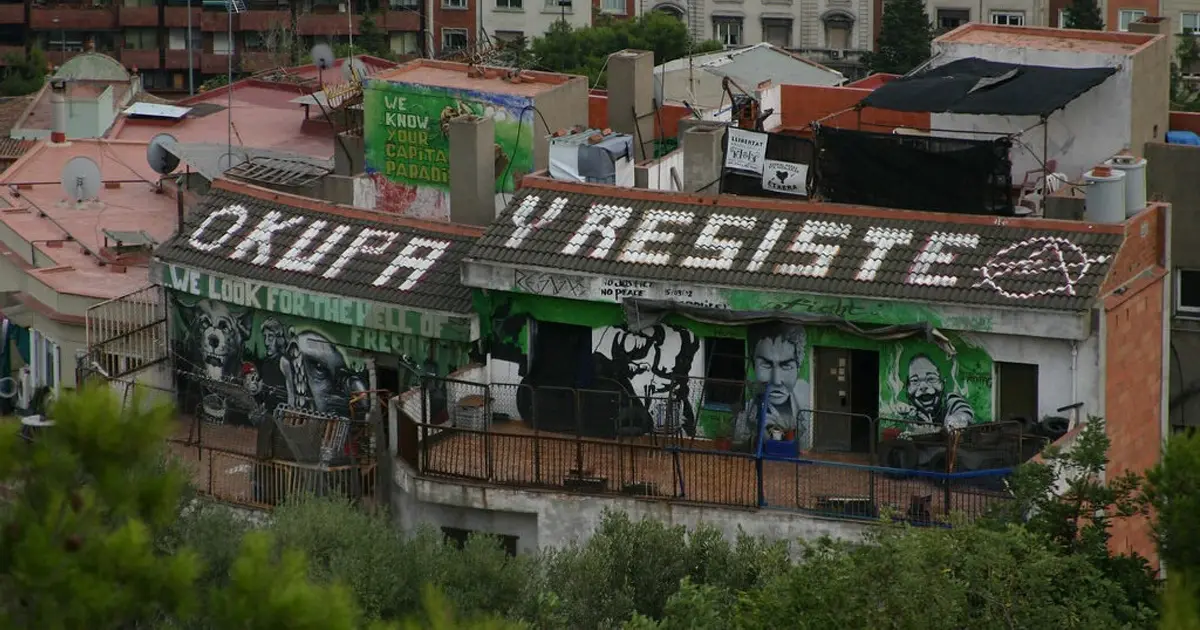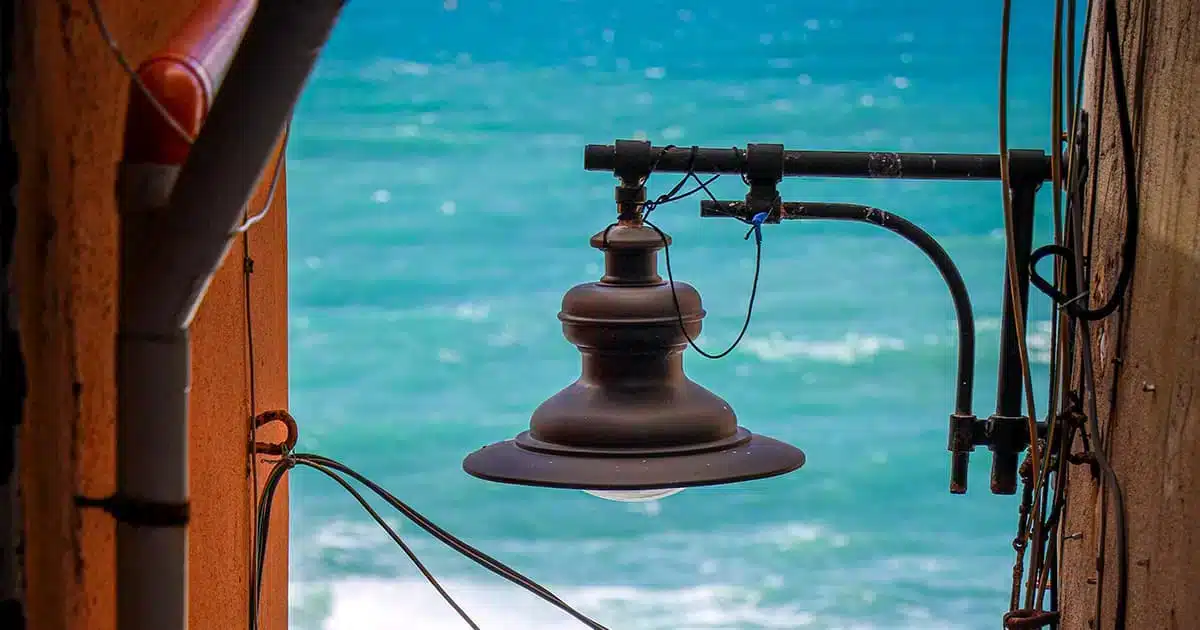
Spain Anti-Squat Law 2025: Faster Evictions and Tougher Penalties
Last update: September 3, 2025
Reading time: 6.9 min
No Time to Read It All? Here’s the Quick Summary:
Spain’s new anti-squat law, in force since April 3, 2025, allows for 48-hour evictions of illegal occupiers when caught early, and court-ordered removal in 15 days under fast-track procedures. Squatters no longer benefit from protections based on vulnerability, while property owners can act more swiftly — but must still go through the courts. The law has stirred major political debate and positions Spain among Europe’s toughest jurisdictions on squatting.
What is the Anti-Squat Law in Spain (2025)?
The Anti-Okupas Law, passed in March 2025 and enacted in April, overhauls how Spanish law handles illegal property occupation (known locally as okupación). It introduces:
-
Fast-track judicial procedures for squat-related crimes
-
Eviction within 48 hours in cases of flagrant entry
-
Stricter penalties, especially for organized squatting or repeat offenses
-
No more delay for vulnerable groups, such as families with children
Previously, evictions could take over 20 months due to legal loopholes and procedural complexity. Now, Spain has adopted a zero-tolerance approach similar to Germany or France.
Legal Background: Types of Illegal Occupation in Spain
Spanish criminal law distinguishes two types of illegal occupation:
-
Allanamiento de morada: Unlawful entry into someone’s home (main or secondary residence), treated as a serious crime with up to 4 years of prison.
-
Usurpación de inmueble: Occupying a vacant or unused property without violence, previously a minor offense punished with a fine.
Before the reform, the latter — which represents most squats — was hard to prosecute quickly. Now, both types can trigger fast-track legal action, with immediate police intervention if caught within 48 hours.
Key Reforms Introduced (2023–2025)
Following rising public concern and political pressure during the 2023 national elections, the Spanish government enacted the following:
-
Integration of squatting into “juicio rápido” (fast-track trials)
-
Police authority to evict within 48h without a court order if the occupation is recent
-
Removal of mandatory “vulnerability assessments” (previously delaying eviction)
-
Tougher penalties for violent or organized squatting
-
Support from across the political spectrum, including both the Socialist Party (PSOE) and the right-wing Popular Party (PP)
These changes aim to strike a balance between property rights and housing concerns, though critics argue the scales now tip heavily in favor of landlords.
New Protections for Property Owners
Under the 2025 law, owners of illegally occupied properties can:
-
File a criminal complaint immediately
-
Have the case handled via fast-track procedure
-
Expect a court decision within 15 days
-
Present proof of ownership (deeds, tax records, expired leases)
-
Obtain enforcement by police within days, not months
Police are also empowered to act without judicial order if the squat is detected within 48 hours of the break-in — reinforcing existing but previously underused powers.
What Rights Do Squatters Have in 2025?
Very few. Squatters in Spain do not acquire legal residency rights by staying in a property. They:
-
Cannot claim tenancy without legitimate documentation
-
Cannot use housing as a constitutional right to oppose eviction
-
Are no longer shielded by “social vulnerability” if caught squatting
Squatters who claim to be renters must provide valid proof (such as a real lease). Otherwise, they face fast-track criminal removal.
False leases or fake rental agreements are common tactics — the new law allows judges to dismiss them quickly unless proven legitimate.
Step-by-Step: How Eviction Works Under the New Law
| Step | Timeframe | What Happens |
|---|---|---|
| Police detection (0–48h) | Immediate | Police can evict squatters without court order if caught in the act. |
| Owner files complaint | < 48 hours or later | Criminal complaint filed with police or court. |
| Court summons parties | Within 72 hours | Both parties (owner & squatter) are notified. |
| Court hearing | Within 15 days | Judge assesses proof of ownership and occupancy claims. |
| Eviction order issued | Immediately after | Police can remove squatters as soon as ruling is issued. |
Timeframe: Immediate
What Happens: Police can evict squatters without court order if caught in the act.
Timeframe: < 48 hours or later
What Happens: Criminal complaint filed with police or court.
Timeframe: Within 72 hours
What Happens: Both parties (owner & squatter) are notified.
Timeframe: Within 15 days
What Happens: Judge assesses proof of ownership and occupancy claims.
Timeframe: Immediately after
What Happens: Police can remove squatters as soon as ruling is issued.
Source: Infobae
Important: Squatters can appeal, but unless they provide valid legal claims, the eviction proceeds without delay.
Penalties for Squatters and Landowners Acting Illegally
For Squatters:
-
Up to 2 years in prison for illegal occupation (usurpación)
-
Up to 4 years if violence or threats are involved (allanamiento)
-
Heavier penalties for:
-
Repeat offenders
-
Organized squats
-
Property damage
-
“Squat mafias” (those who illegally rent occupied homes)
-
For Owners (who act outside the law):
-
Illegal evictions (changing locks, threats, cutting utilities) are criminal offenses
-
Can be charged with “arbitrary exercise of one’s rights” under Article 455 of Spain’s Penal Code
-
Fines or up to 3 months in prison
Owners must go through legal channels, even if they’re understandably frustrated.
Political and Social Reactions
-
Right-wing parties (PP, Vox): Welcomed the law, calling it overdue and necessary
-
Left-wing parties (Podemos): Opposed the reform, calling it inhumane and criminalizing poverty
-
Socialist-led government (PSOE): Supported the reform, but insisted on safeguards for vulnerable people
Civil society is deeply divided:
-
Property owner associations praise the law and demand strict enforcement
-
Housing rights groups denounce it as punishing the poor, calling for more public housing, not just evictions
-
Media outlets are split: some highlight rare horror stories, while others point out that squatting affects less than 0.06% of properties per year
European Comparison: Spain vs. Other Countries
| Country | Squatting Legal Status | Eviction Procedure | Penalties |
|---|---|---|---|
| Spain | Criminal offense | Police in 48h (if caught early), court in max 15 days | Up to 4 years (if violent), fines |
| France | Criminal offense (since 2023) | Administrative eviction via prefect in ~3 days | Up to 3 years prison, €45,000 fine |
| Italy | Criminal offense | Court-ordered eviction, often slower | Up to 2 years + fine |
| Germany | Criminal offense (strict) | Police-led eviction within 24h | Up to 2 years in prison |
Squatting Legal Status: Criminal offense
Eviction Procedure: Police in 48h (if caught early), court in max 15 days
Penalties: Up to 4 years (if violent), fines
Squatting Legal Status: Criminal offense (since 2023)
Eviction Procedure: Administrative eviction via prefect in ~3 days
Penalties: Up to 3 years prison, €45,000 fine
Squatting Legal Status: Criminal offense
Eviction Procedure: Court-ordered eviction, often slower
Penalties: Up to 2 years + fine
Squatting Legal Status: Criminal offense (strict)
Eviction Procedure: Police-led eviction within 24h
Penalties: Up to 2 years in prison
Source: Infobae
Spain’s 2025 law aligns it more closely with Germany and France, abandoning its formerly lenient stance on vacant property squats.
Conclusion
Spain’s Anti-Squat Law of 2025 is one of the toughest in Europe. It empowers property owners with fast-track legal remedies, aims to deter organized squatting, and reinforces the principle of private property. While many hail it as long overdue, others criticize its lack of compassion for those facing homelessness.
The real test lies in implementation — whether courts and police can meet the tight deadlines — and in social policy, namely whether Spain invests enough in affordable housing to reduce the root causes of squatting.
Property protection may be guaranteed by law, but housing security must be guaranteed by policy.








